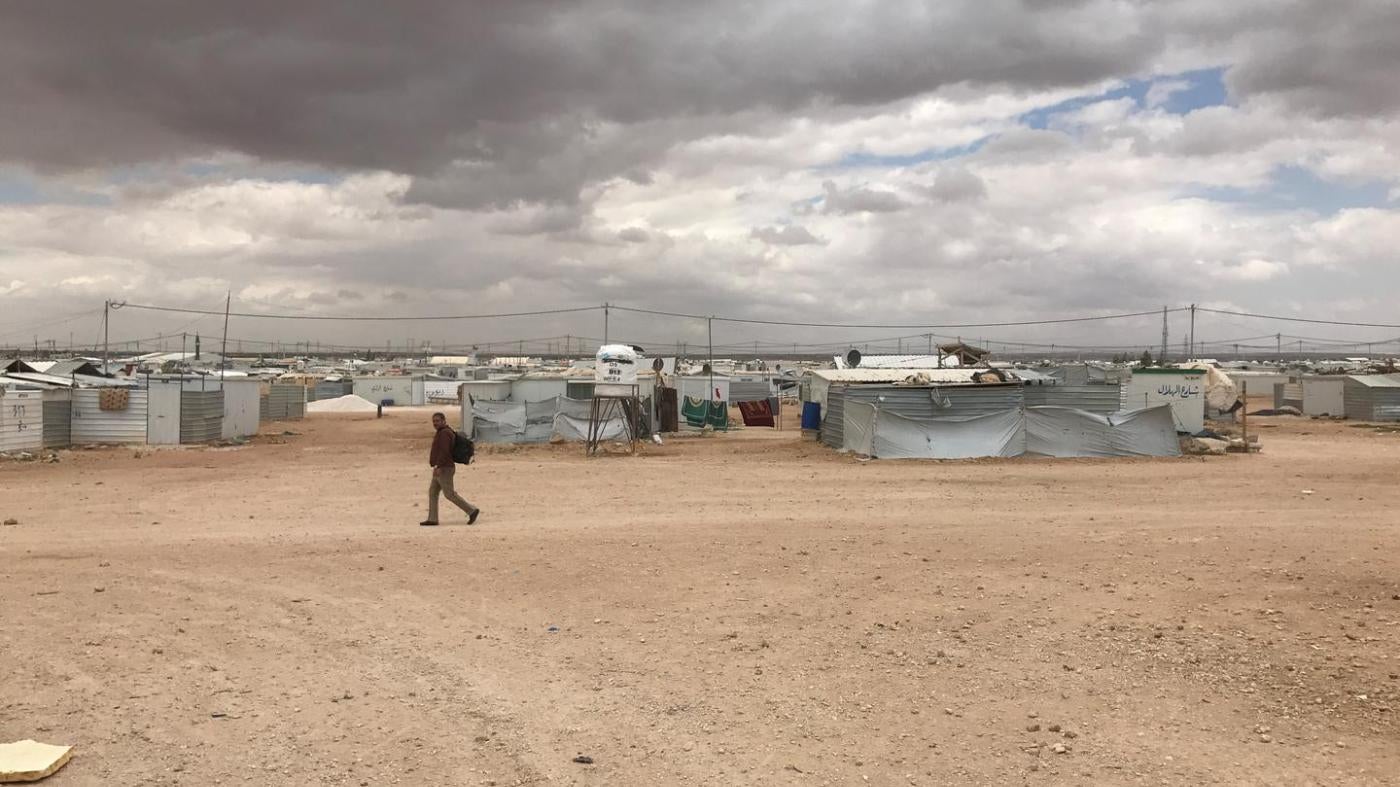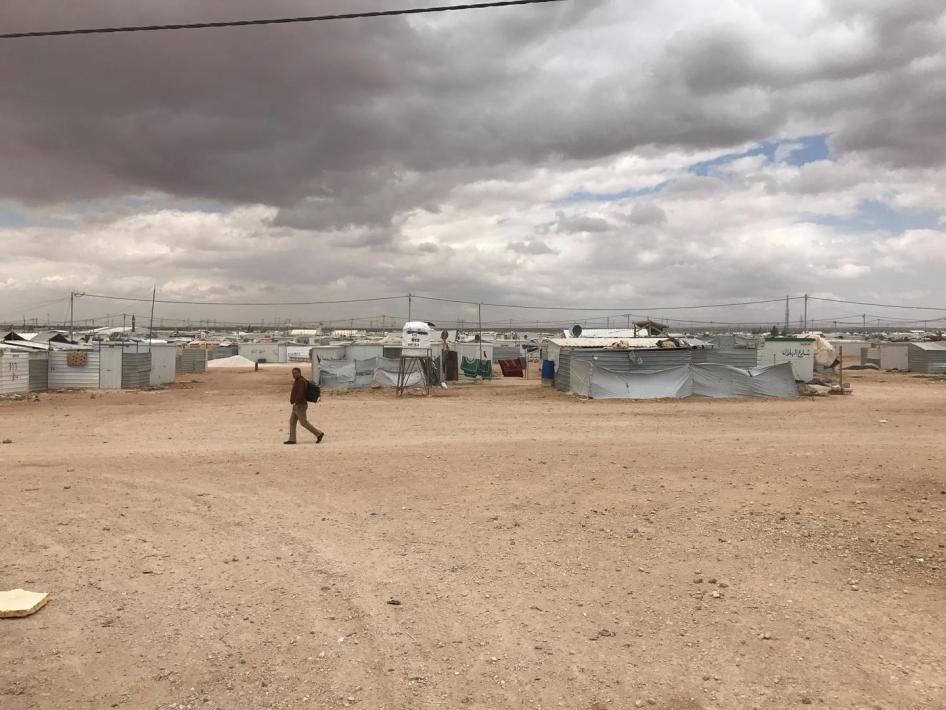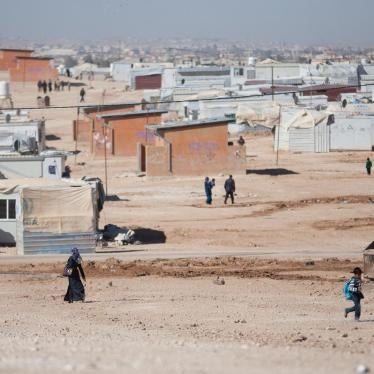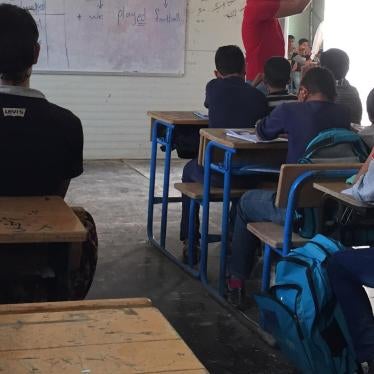Syrians who thought they had escaped their civil war by fleeing to neighboring Jordan have been summarily deported to their war-ravaged country without explanation. Jordan’s government says refugees are being sent back to protect national security. A new Human Rights Watch report shows that whole families, almost without warning, have been caught up in collective expulsions.
Here are some of their stories (the names have been changed to protect them):
“Rouqiya”
The Jordanian officers said they were only calling in Rouqiya’s family for questioning. The 30-year-old woman, who struggles with serious health issues, her husband, and their three children – including their 6-month-old baby – obediently went along, suspecting nothing.
“When we asked them, ‘Where are you taking us?’ They said to us not to worry and that we won’t be returned, we will only be asked some questions at Raba Sarhan – which was originally a UNHCR registration center, but is now also used to house Syrians who are being repatriated. Then we found ourselves in the Naseeb checkpoint in Syria.”
They were never given a reason for their deportation.
“We really weren’t expecting this at all because we haven’t done anything wrong,” she said. “We didn’t even bring anything with us because we were so sure we would go home after questioning.”
The young family, deported in March, is now stuck in the Dara’a countryside near the border with Jordan. They originally came from Homs, just over a three-hour drive north, but their home there was destroyed. They couldn’t go back. Rouqiya’s health has deteriorated since her deportation, as she and her children now live in a school overcrowded with other displaced people:
“We are staying at a school; there are no houses and the situation is dire. The children are always in a state of fear because of the sound of warplanes above. My medicine is not available here. I need the medicine and baby formula for my child. Because of my illness, I can’t breast-feed her.”
“Raw’a”
When Raw’a’s 22-year-old son was killed in an airstrike in Dara’a, Syria, she naturally wanted to speak to her friends and family back home. “We had been calling friends and contacts back in Syria often in the aftermath of his death. Our communication with Syria increased.”
Jordanian authorities summoned her and her husband twice for interviews to find out how her son had died, and if he had been involved in any fighting. If family members in Syria are part of the fighting, their relatives in Jordan are more likely to be seen as security risks.
The first time was immediately after her son’s death, but the authorities allowed her to stay, so she thought she would be safe in her new life. Then, roughly 10 months later, the second summons came.
“They summoned us again and directly sent us back [to Syria] in a really ugly manner. They did not beat us at the GID [the General Intelligence Directorate], but the treatment was bad. They sent us to our house, told us to take our money, our Syrian documentation and we were immediately sent back to Syria.” Raw’a now lives in the courtyard of a mosque in Jiza, a Syrian town near the Jordanian border. She is in poor health and has another son who needs medical care that is not available in Syria.
“We are in a really difficult situation here. Now in Jiza, we are staying in the courtyard of the Ali bin Abi Taleb Mosque. There is definite danger and we are always scared because we aren’t used to as dangerous a situation as this. My son has a bad kidney and had undergone three surgeries in Jordan. He is now in need of another really important operation. I am sick too and need immediate treatment.”
Now her family who are still in Jordan are too afraid to contact Raw’a and her husband. They fear that any calls to Syria may be monitored by Jordanian authorities. They try to avoid being noticed, Raw’a said. “They try not to go out as much anymore and they reduce their calls to Syria.”
“Bassam”
When he first spoke to Human Rights Watch after being deported from Jordan in March, 20-year-old Bassam was heading east with his family along the Jordanian border going toward the remote desert location known as “the Berm,” which Human Rights Watch has reported on in the past. We stayed in touch with him as he and his family made their way north from there [OK?] to the Syrian border with Turkey
“The reason for my deportation is non-existent,” he said. Four years earlier, Bassam, his parents and siblings had been smuggled out of the Zaatari camp for displaced people in Jordan and had been living without any problems in the town of Ma’an. One day the police summoned them. “They told us to go to the [Zaatari] camp, and get our papers ready and that we’ll be sent back to Ma’an after, but instead they sent us to Syria. All our stuff is in Ma’an.”
“The UNHCR had no idea about what was happening to us and the police officers refused to allow us to call them,” he said. He said he was surprised at being sent back to Syria, where the war meant ever-present danger for him and his family: “It wasn’t just us. Many others were sent back too. Every day they send buses full of people back to Syria.”
He said that he and his family were expelled to Syria in a caravan of three buses filled with families. He said he knew people who had been killed in airstrikes after being deported. “I swear to God, just two days ago, a guy and his son were killed near the Nasseeb border crossing.” He was desperate to keep his family safe, which was why he was trying to make his way to Turkey.
On July 2, he told Human Rights Watch they had made it to Turkey.
“Our journey was terribly hard. We suffered.”
It’s a trip none of them would have undertaken had Jordan not deported them.






